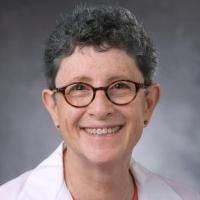Defibrotide for the treatment of severe hepatic veno-occlusive disease and multiorgan failure after stem cell transplantation: a multicenter, randomized, dose-finding trial.
Date
2010-07
Journal Title
Journal ISSN
Volume Title
Repository Usage Stats
views
downloads
Citation Stats
Attention Stats
Abstract
Therapeutic options for severe hepatic veno-occlusive disease (VOD) are limited and outcomes are dismal, but early phase I/II studies have suggested promising activity and acceptable toxicity using the novel polydisperse oligonucleotide defibrotide. This randomized phase II dose-finding trial determined the efficacy of defibrotide in patients with severe VOD following hematopoietic stem cell transplantation (HSCT) and identified an appropriate dose for future trials. Adult and pediatric patients received either lower-dose (arm A: 25 mg/kg/day; n = 75) or higher-dose (arm B: 40 mg/kg/day; n = 74) i.v. defibrotide administered in divided doses every 6 hours for > or =14 days or until complete response, VOD progression, or any unacceptable toxicity occurred. Overall complete response and day +100 post-HSCT survival rates were 46% and 42%, respectively, with no significant difference between treatment arms. The incidence of treatment-related adverse events was low (8% overall; 7% in arm A, 10% in arm B); there was no significant difference in the overall rate of adverse events between treatment arms. Early stabilization or decreased bilirubin was associated with better response and day +100 survival, and decreased plasminogen activator inhibitor type 1 (PAI-1) during treatment was associated with better outcome; changes were similar in both treatment arms. Defibrotide 25 or 40 mg/kg/day also appears effective in treating severe VOD following HSCT. In the absence of any differences in activity, toxicity or changes in PAI-1 level, defibrotide 25 mg/kg/day was selected for ongoing phase III trials in VOD.
Type
Department
Description
Provenance
Subjects
Citation
Permalink
Published Version (Please cite this version)
Publication Info
Richardson, Paul G, Robert J Soiffer, Joseph H Antin, Hajime Uno, Zhezhen Jin, Joanne Kurtzberg, Paul L Martin, Gideon Steinbach, et al. (2010). Defibrotide for the treatment of severe hepatic veno-occlusive disease and multiorgan failure after stem cell transplantation: a multicenter, randomized, dose-finding trial. Biology of blood and marrow transplantation : journal of the American Society for Blood and Marrow Transplantation, 16(7). pp. 1005–1017. 10.1016/j.bbmt.2010.02.009 Retrieved from https://hdl.handle.net/10161/24611.
This is constructed from limited available data and may be imprecise. To cite this article, please review & use the official citation provided by the journal.
Collections
Scholars@Duke

Joanne Kurtzberg
Dr. Kurtzberg is an internationally renowned expert in pediatric hematology/oncology, pediatric blood and marrow transplantation, umbilical cord blood banking and transplantation, and novel applications of cord blood and birthing tissues in the emerging fields of cellular therapies and regenerative medicine. Dr. Kurtzberg serves as the Director of the Marcus Center for Cellular Cures (MC3), Director of the Pediatric Transplant and Cellular Therapy Program, Director of the Carolinas Cord Blood Bank, and Co-Director of the Stem Cell Transplant Laboratory at Duke University. The Carolinas Cord Blood Bank is an FDA licensed public cord blood bank distributing unrelated cord blood units for donors for hematopoietic stem cell transplantation (HSCT) through the CW Bill Young Cell Transplantation Program. The Robertson GMP Cell Manufacturing Laboratory supports manufacturing of RETHYMIC (BLA, Enzyvant, 2021), allogeneic cord tissue derived and bone marrow derived mesenchymal stromal cells (MSCs), and DUOC, a microglial/macrophage cell derived from cord blood.
Dr. Kurtzberg’s research in MC3 focuses on translational studies from bench to bedside, seeking to develop transformative clinical therapies using cells, tissues, molecules, genes, and biomaterials to treat diseases and injuries that currently lack effective treatments. Recent areas of investigation in MC3 include clinical trials investigating the safety and efficacy of autologous and allogeneic cord blood in children with neonatal brain injury – hypoxic ischemic encephalopathy (HIE), cerebral palsy (CP), and autism. Clinical trials testing allogeneic cord blood are also being conducted in adults with acute ischemic stroke. Clinical trials optimizing manufacturing and testing the safety and efficacy of cord tissue MSCs in children with autism, CP and HIE and adults with COVID-lung disease are underway. DUOC, given intrathecally, is under study in children with leukodystrophies and adults with primary progressive multiple sclerosis.
In the past, Dr. Kurtzberg has developed novel chemotherapeutic drugs for acute leukemias, assays enumerating ALDH bright cells to predict cord blood unit potency, methods of cord blood expansion, potency assays for targeted cell and tissue based therapies. Dr. Kurtzberg currently holds several INDs for investigational clinical trials from the FDA. She has also trained numerous medical students, residents, clinical and post-doctoral fellows over the course of her career.

Paul Langlie Martin
For most of my career in Pediatric Hematology/Oncology I have focused on the use of stem cell transplant for the treatment of pediatric leukemias (ALL, AML, CML and JMML) and other non-malignant blood disorders, such as sickle cell disease, hemaphagocytic disorders, Wiskott-Aldrich, aplastic anemia, Diamond-Blackfan Anemia, as well as inherited metabolic diseases. In addition to focusing on determining the best use of stem cell transplants for these disorders, I have also been involved in clinical research investigating the prevention and treatment of transplant related morbidity, particularly veno-occlusive disease of the liver, infections and diffuse alveolar hemorrhage. As study chair for the Children's Oncology Group protocol 9904, I was involved in the development, implementation and analysis of a large, international frontline study of childhood acute lymphoblastic leukemia. Results from this study show that a significant number of children with certain favorable cytogenetic abnormalities in their leukemic cells and who have a rapid response to their initial chemotherapy can expect to have a >95% chance of cure when treated with relatively low intensity chemotherapy.
I have concentrated on providing high quality care for high risk leukemia patients who require high intensity therapies, such as stem cell transplant and immunotherapy. As a member of the Pediatric Transplant and Cellular Therapy Division I provide clinical care for these patients. As a member of various cooperative groups and local PI for several drug trials, I have worked to provide better care and more specific therapies for the toxicities associated with stem cell transplant.
I have also collaborated with the Pediatric Immunology Division to provide a life-saving therapy for a small group of patients with thymic dysfunction, which causes severe immunodeficiency. Our clinical team now provides support during these patients hospital admissions for donor thymus tissue implantation. We once again achieved a new record for the number of implanted patients during the 2022-2023 academic year.
Unless otherwise indicated, scholarly articles published by Duke faculty members are made available here with a CC-BY-NC (Creative Commons Attribution Non-Commercial) license, as enabled by the Duke Open Access Policy. If you wish to use the materials in ways not already permitted under CC-BY-NC, please consult the copyright owner. Other materials are made available here through the author’s grant of a non-exclusive license to make their work openly accessible.
